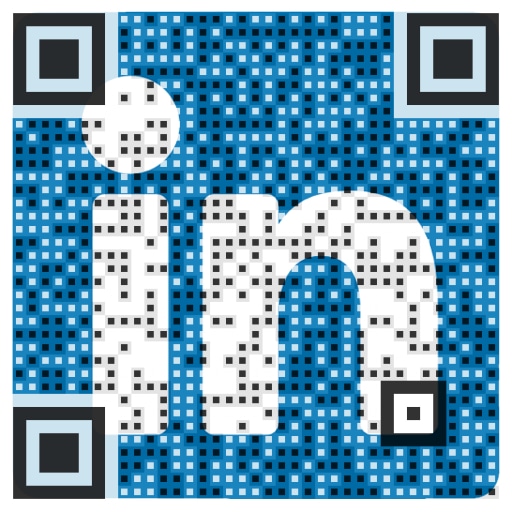
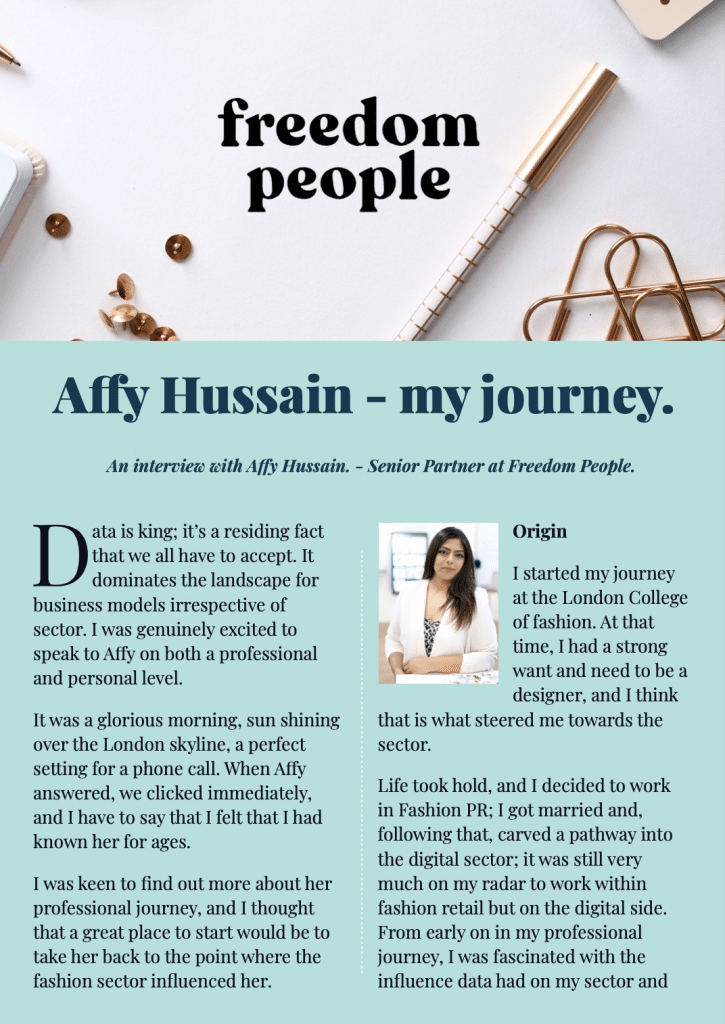
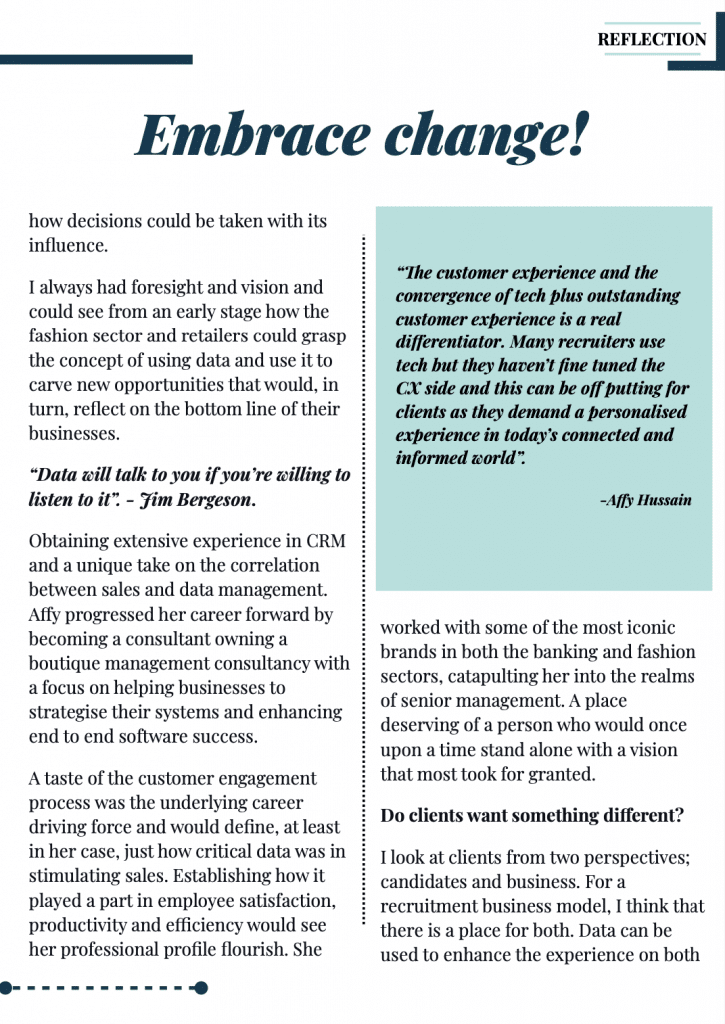
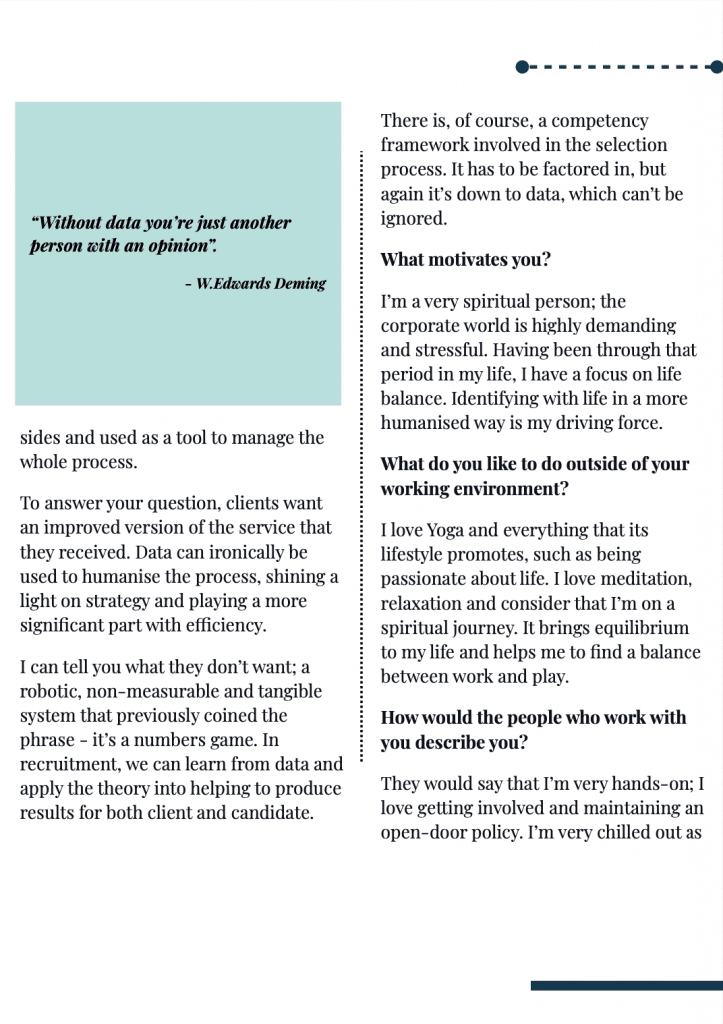
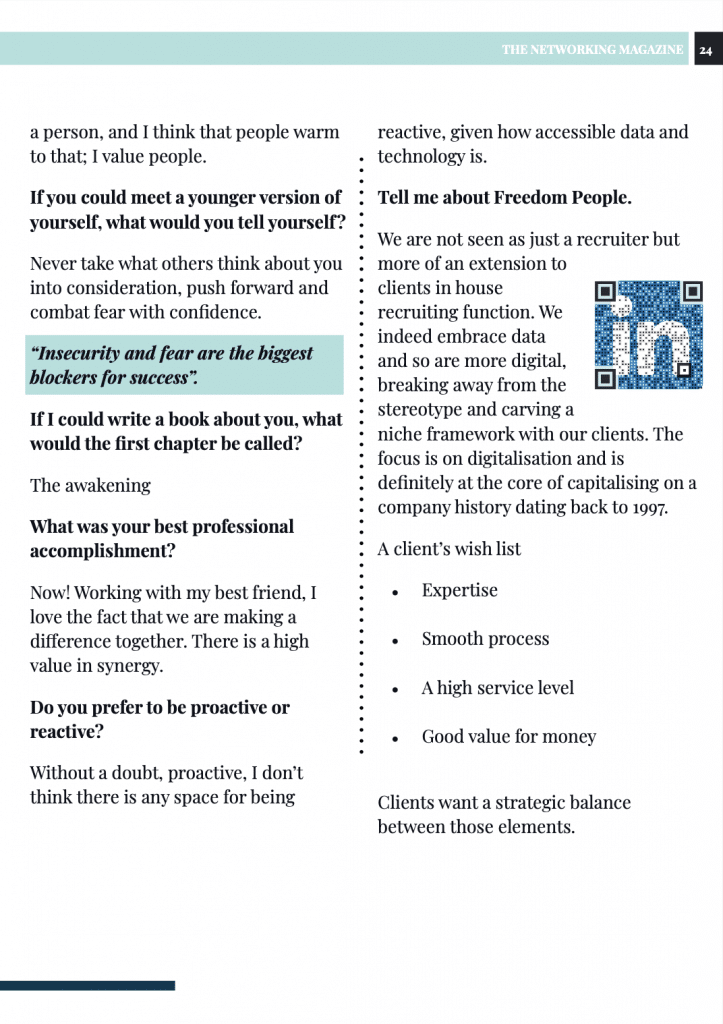
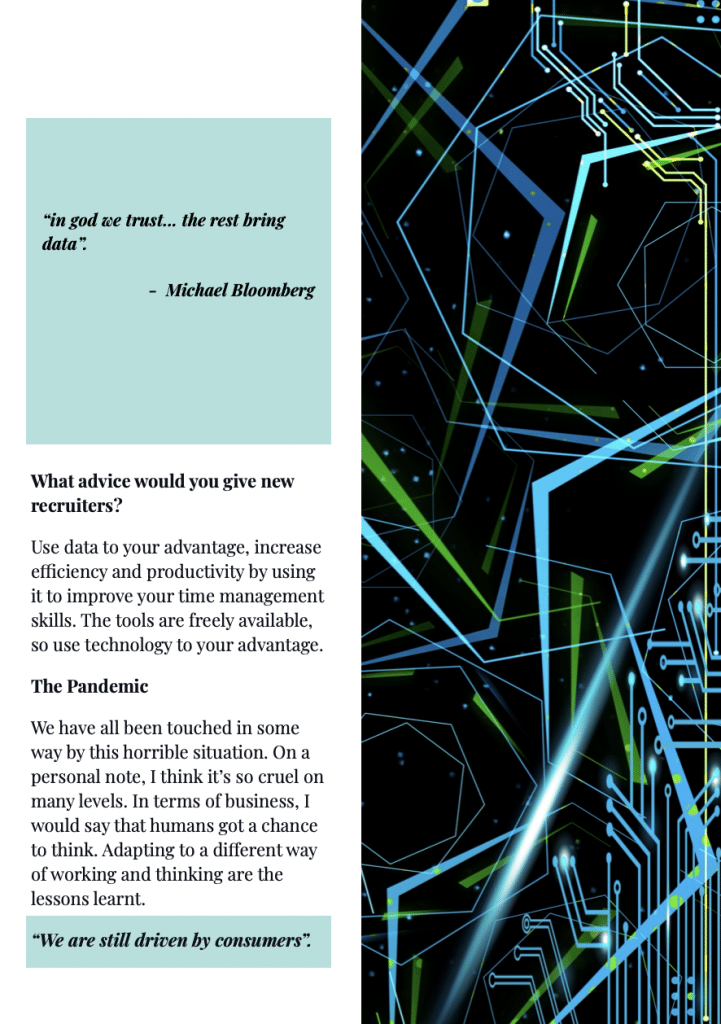
Data is king; it’s a residing fact that we all have to accept. It dominates the landscape for business models irrespective of sector. I was genuinely excited to speak to Affy on both a professional and personal level. It was a glorious morning, sun shining over the London skyline, a perfect setting for a phone call. When Affy answered, we clicked immediately, and I have to say that I felt that I had known her for ages. I was keen to find out more about her professional journey, and I thought that a great place to start would be to take her back to the point where the fashion sector influenced her.
Origin
I started my journey at the London College of fashion. At that time, I had a strong want and need to be a designer, and I think that is what steered me towards the sector.
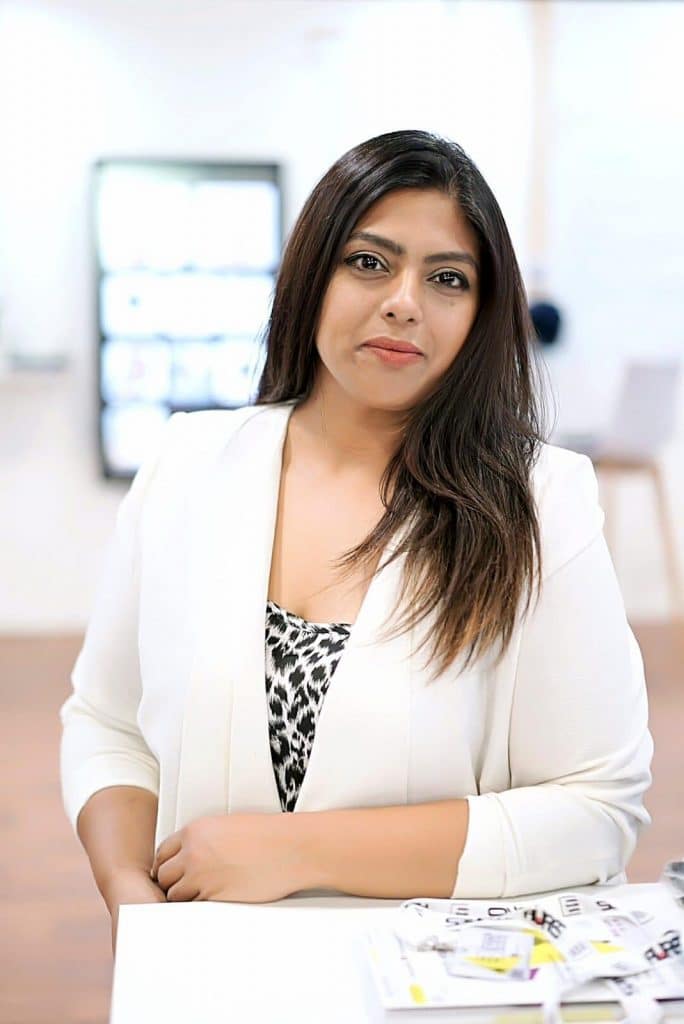
Life took hold, and I decided to work in Fashion PR; I got married and, following that, carved a pathway into the digital sector; it was still very much on my radar to work within fashion retail but on the digital side. From early on in my professional journey, I was fascinated with the influence data had on my sector and how decisions could be taken with its influence.
I always had foresight and vision and could see from an early stage how the fashion sector and retailers could grasp the concept of using data and use it to carve new opportunities that would, in turn, reflect on the bottom line of their businesses.
“Data will talk to you if you’re willing to listen to it”.
– Jim Bergeson
Obtaining extensive experience in CRM and a unique take on the correlation between sales and data management. Affy progressed her career forward by becoming a consultant owning a boutique management consultancy with a focus on helping businesses to strategise their systems and enhancing end to end software success.
A taste of the customer engagement process was the underlying career driving force and would define, at least in her case, just how critical data was in stimulating sales. Establishing how it played a part in employee satisfaction, productivity and efficiency would see her professional profile flourish. She worked with some of the most iconic brands in both the banking and fashion sectors, catapulting her into the realms of senior management. A place deserving of a person who would once upon a time stand alone with a vision that most took for granted.
Do clients want something different?
I look at clients from two perspectives; candidates and business. For a recruitment business model, I think that there is a place for both. Data can be used to enhance the experience on both sides and used as a tool to manage the whole process.
To answer your question, clients want an improved version of the service that they received. Data can ironically be used to humanise the process, shining a light on strategy and playing a more significant part with efficiency.
I can tell you what they don’t want; a robotic, non-measurable and tangible system that previously coined the phrase – it’s a numbers game. In recruitment, we can learn from data and apply the theory into helping to produce results for both client and candidate.
There is, of course, a competency framework involved in the selection process. It has to be factored in, but again it’s down to data, which can’t be ignored.
“The customer experience and the convergence of tech plus outstanding customer experience is a real differentiator. Many recruiters use tech but they haven’t fine tuned the CX side and this can be off putting for clients as they demand a personalised experience in today’s connected and informed world”.
– Affy Hussain
What motivates you?
I’m a very spiritual person; the corporate world is highly demanding and stressful. Having been through that period in my life, I have a focus on life balance. Identifying with life in a more humanised way is my driving force.
What do you like to do outside of your working environment?
I love Yoga and everything that its lifestyle promotes, such as being passionate about life. I love meditation, relaxation and consider that I’m on a spiritual journey. It brings equilibrium to my life and helps me to find a balance between work and play.
How would the people who work with you describe you?
They would say that I’m very hands-on; I love getting involved and maintaining an open-door policy. I’m very chilled out as a person, and I think that people warm to that; I value people.
If you could meet a younger version of yourself, what would you tell yourself?
Never take what others think about you into consideration, push forward and combat fear with confidence.
“Insecurity and fear are the biggest blockers for success”.
– Affy Hussain
If I could write a book about you, what would the first chapter be called?
The awakening.
What was your best professional accomplishment?
Now! Working with my best friend, I love the fact that we are making a difference together. There is a high value in synergy.
Do you prefer to be proactive or reactive?
Without a doubt, proactive, I don’t think there is any space for being reactive, given how accessible data and technology is.
Tell me about Freedom People.
We are not seen as just a recruiter but more of an extension to clients in house recruiting function. We indeed embrace data and so are more digital, breaking away from the stereotype and carving a niche framework with our clients. The focus is on digitalisation and is definitely at the core of capitalising on a company history dating back to 1997.
A client’s wish list
- Expertise
- Smooth process
- A high service level
- Good value for money
Clients want a strategic balance between those elements.
“In god we trust… the rest bring data”.
– Michael Bloomberg
What advice would you give new recruiters?
Use data to your advantage, increase efficiency and productivity by using it to improve your time management skills. The tools are freely available, so use technology to your advantage.
The Pandemic
We have all been touched in some way by this horrible situation. On a personal note, I think it’s so cruel on many levels. In terms of business, I would say that humans got a chance to think. Adapting to a different way of working and thinking are the lessons learnt.
“We are still driven by consumers”.
– Affy Hussain
